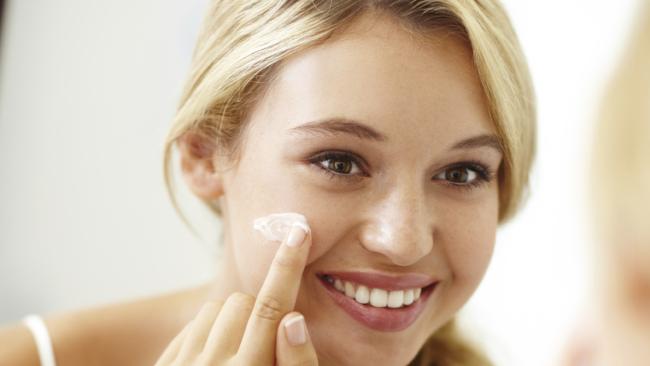L’Oreal printing 3D skin to test anti-ageing moisturisers
IT’S not science fiction. The French cosmetic company is growing some 100,000 samples of human skin a year. And it has bigger ambitions.

WHO needs to test makeup products on animals when there’s rejected human skin available?
L'Oreal scientists in France are growing skin samples from the donated tissue of plastic surgery patients to test products like anti-ageing moisturisers, the New York Post reports.
They’ve just announced a partnership deal with a company called Organovo, “to figure out how to 3D print living breathing derma that can be used to test products for toxicity and efficacy,” according to Bloomberg.
It’s the next step in the French company’s plan to revolutionise the beauty industry and speed up skin production — they have, after all, been farming skin in nine different ‘varieties’ since the 1980s, when they decided they didn’t want to test products on animals.
Their labs in France already produce 100,000 skin samples every year, growing them from tissue donated by plastic surgery patients.
Bloomberg have kindly done the maths for us, stating that 100,000 samples equates to “roughly five square meters of skin per year — or 54 square feet, about the equivalent of one cowhide. Each sample is 0.5 square centimetre in size. The fattest are 1 millimetre thick.”
“We create an environment that’s as close as possible to being inside someone’s body,” said L’Oreal’s Guive Balooch of the labs, which are the size of three Olympic swimming pools.
The idea behind their partnership with Organovo is “to speed up and automate skin production within the next five years,” reported Bloomberg.
“L’Oreal will provide skin expertise and all the initial funding, while Organovo, which is already working with such companies as Merck to print liver and kidney tissues, will provide the technology.
“L’Oreal will have exclusive rights to the 3D-printed skin developed with Organovo for uses related to non-prescription skin care products. Organovo will retain rights to the tissue models for efficacy testing of prescription drugs, toxicity tests, and the development and testing of therapeutic or surgically transplanted tissues,” Bloomberg explained.
What L’Oreal doesn’t use for testing, it can sell on to other to pharmaceutical companies for around $70 per unit.
